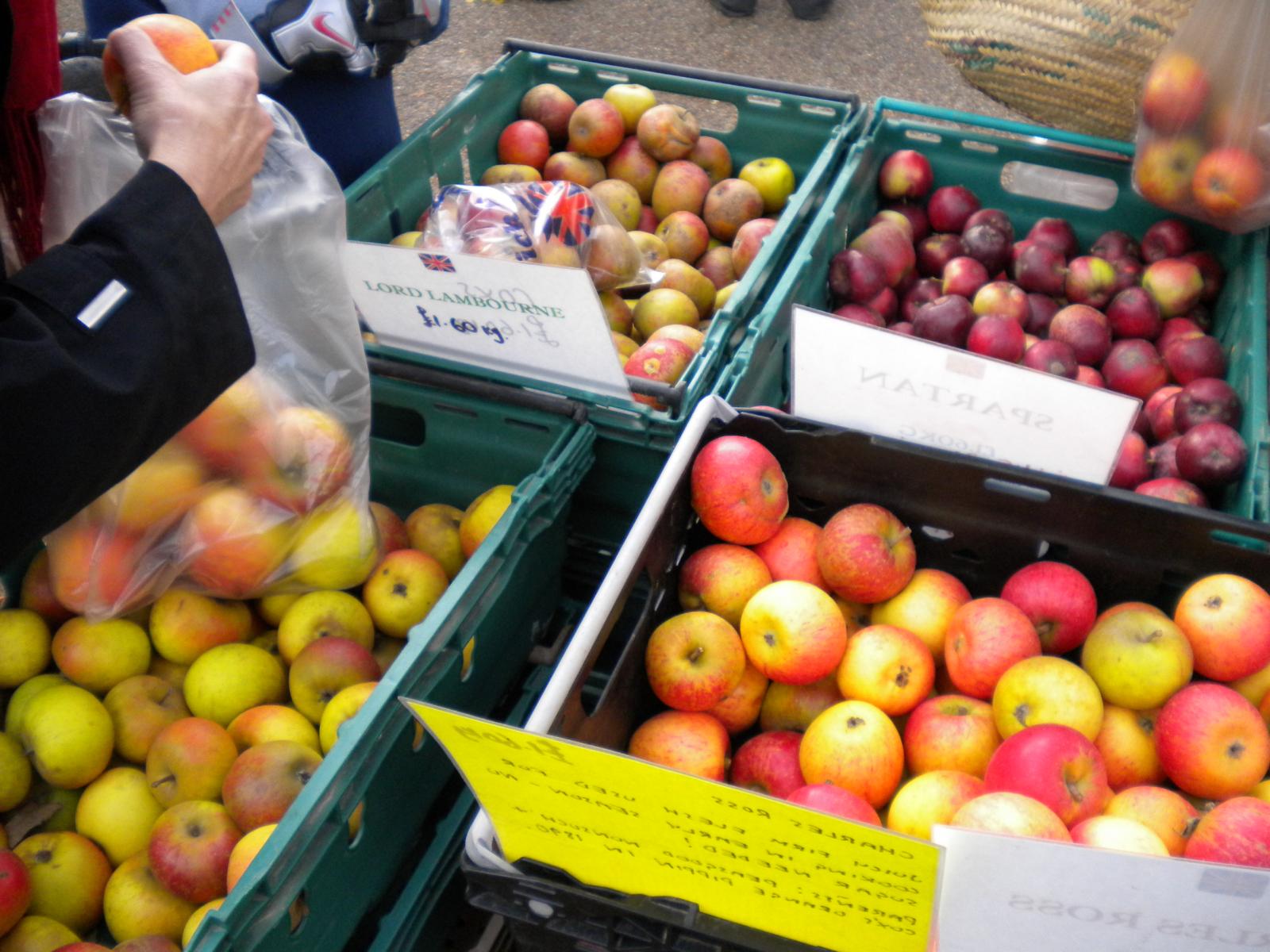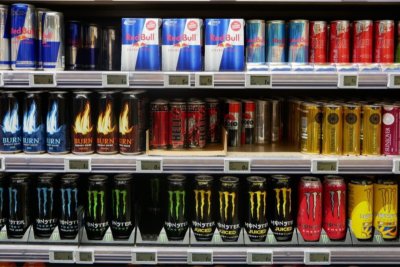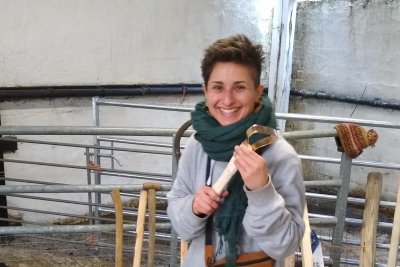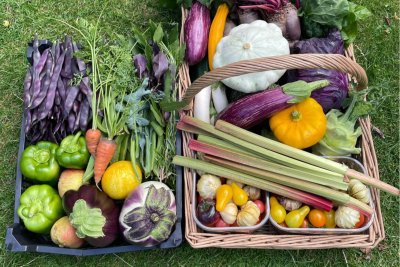Blogs • Coronavirus Food Alert
Covid-19 food insecurity must not be allowed to happen again
Sustain calls for a public inquiry into the Covid-19 emergency food response, to ensure that we don't make the same mistakes again.
There is growing disquiet about many aspects of the UK’s response to the Covid-19 pandemic. In particular, Sustain has lots of questions about the inadequacy of money allocated to supporting those most in need, causing so many people to have gone hungry – a situation that was wholly preventable; and also about how food was supplied during the pandemic, including who benefited most from large injections of public money.
When Covid-19 lockdown was announced in March 2020, Sustain quickly recognised that the Covid-19 emergency is also a food crisis. We immediately re-purposed our work to help support the emergency food response, working with community groups, food partnerships, food businesses, local authorities and government to help secure food supply, food and farming jobs and access to adequate food for everybody.
In June 2020, we recorded our serious concerns about the nation’s response to the Covid-19 food emergency, and what we believe should be learned for the future.
With job losses and economic downturn, and whilst government and local authorities start to dismantle emergency food and financial provision, we face the possibility of household food insecurity getting much worse – not better – over the coming months.
This is why Sustain is backing the growing calls for a public inquiry, and for updates to key legislation, responsibilities, powers, resource allocation and accountability that would help to mitigate or prevent future food crisis. In a Covid-19 public inquiry, we would like to see the following addressed:
1. Why did so many people go hungry before and during the Covid-19 pandemic?
Prior to the pandemic 8.4 million people in Britain were already living with household food insecurity. By May 2020, the Food Foundation reported that five million people in the UK living in households with children under 18 had experienced food insecurity since the lockdown started. Of these, 1.8 million experienced food insecurity due to lack of food supply, leaving 3.2 million people (11% of households) suffering from food insecurity due to other issues such as loss of income or isolation, with 200,000 children having had to skip meals. Charitable food banks such as those in the Trussell Trust and Independent Food Aid Networks reported a doubling in need for emergency food parcels during lockdown, including double the number of children, compared to the same period last year. Both networks, and many others, also expressed profound concern about financial and food provision for those most in need as lockdown lifts.
We repeat: hunger and food insecurity due to financial hardship are wholly preventable. In other countries, such as Canada, Ireland, Australia and New Zealand, citizens received an immediate cash payment to help them get through. Whilst evaluation of various interventions is not yet available, we contend that such decisive and egalitarian moves are good for household food security, managing anxiety that contributes to mental well-being, and for local food businesses. Such a move in the UK would also have avoided the extreme stress and pressure put onto charitable food banks and their volunteers, as well as the families who experienced going hungry.
2. Why has it been so hard for Government to recognise and relieve financial hardship for those most in need?
The government worked quickly to define and identify 1.5m medically vulnerable people who might have difficulty accessing food while shielding, offering a food parcel delivery service. Considerable effort was also put into helping non-shielded vulnerable people struggling to purchase food for physical reasons, for example efforts to secure supermarket delivery slots, remote payment options and volunteer shoppers for those unable to get to the shops or lacking help from family or neighbours. Some are describing these as ‘situational’ difficulties with food access.
However, it took until 8 May 2020 – seven weeks into lockdown – for a Government minister to formally recognise financial hardship as a factor in the alarming rate of household food insecurity during Covid-19, when announcing £16m for a temporary scheme to help buy food for 5,000 frontline charities feeding extremely vulnerable people, such as people in homeless shelters and domestic violence refuges. There is no indication of what support may be available beyond this temporary funding period.
Relief efforts at national and local level have been greatly hampered by Government’s lack of methodology to identify and support people experiencing financial hardship, which impedes their ability to access adequate food. This is despite several methodologies having been proposed to Government during the crisis by highly experienced poverty policy groups. We deeply regret the Government’s long-standing resistance to mandatory measurement of household food insecurity and lack of systematic commitment to addressing the root causes.
3. Why was it so hard to ensure children from very low-income families got the food they needed?
There was a lack of preparedness for the closure of schools, including the impact this would have on children whose families would struggle to afford food. The free school meals voucher scheme instigated within the first few weeks of Covid-19 lockdown signalled the government intended to prevent child hunger, but significant technical difficulties and questions over eligibility, payment methods and holiday periods seriously undermined the effectiveness of the scheme. It also did not include lower cost and convenience shops that many lower-income families frequent.
Eligibility for free school meals is an imperfect proxy for children’s food insecurity, being at best an indicator and starting point. Whilst we accept the logic of prioritising the needs of some children (i.e. those eligible for free school meals, being from families on extremely low income), the Department for Education (DfE) failed to recognise the one million children aged 7-16 who live in food insecure households but do not receive free school meals, and that Universal Infant Free School Meals, the School Fruit and Vegetable Scheme and many school breakfast services were suspended.
It is also important to recognise there are at least 100,000 children (according to Children’s Society figures) with the immigration status of ‘no recourse to public funds’ who are generally ineligible for free school meals. Some of these became temporarily eligible during Covid-19 following a legal challenge. It took until the end of June 2020 for Government guidance to be updated to make this clear, with no guarantee that this would be actively promoted to reach families on the very lowest incomes and unable to access the kind of support available to others such as Universal Credit.
Furthermore, schools were encouraged to extend provision to children in the 1.4 million households who have recently applied for Universal Credit whilst their applications were being assessed, meaning that the schools took on financial risk. Whilst the voucher scheme is centrally funded, schools using alternative local free meal/voucher or cash mechanisms were only able to claim reimbursement as ‘exceptional costs’ if they could demonstrate risk to their reserve levels or long-term financial stability. Only after lobbying did the national voucher scheme extend to the Easter holidays and summer half-term (see more on this below).
4. Why did Sustain have to resort to legal action to secure government action on child holiday hunger?
At the beginning of June 2020, the Government announced that it would stop the free school meal voucher scheme over the summer holidays. This was three days after a Defra minister declared in a letter to House of Lords peers, “We will work around the clock to ensure that nobody goes hungry as a result of this crisis.” As an apparent solution, the Government pointed to a £63m local authority welfare assistance scheme (putting children in competition with adults and other local council priorities for support) and a £9m pilot scheme of holiday activities and food for 50,000 children from low-income families (50,000 being just 4% of the number of children eligible for free school meals in England).
On 16 June 2020, the Government agreed to extend free school meal vouchers over the summer holiday at a cost of £120m for England, following intensive advocacy and campaign work by a host of food, poverty, health and children’s organisations; a petition by 16-year-old Christina A (surname withheld) that attracted a quarter of a million signatures; Judicial Review proceedings from Sustain and the Good Law Project; a potential backbench rebellion over a key House of Commons vote on the issue; topped off with a winning campaign goal scored by Premier League and England footballer Marcus Rashford.
Wales had already established a more generous holiday food scheme; Scotland confirmed their own £27.5m scheme on the same day as Prime Minister Boris Johnson’s announcement; and the Northern Ireland First Minister said she would take a recommendation to the NI Executive to follow suit (a proposal subsequently confirmed). All of these decisions to help mitigate child hunger over the summer came just one month before the school term was due to end, leaving schools and community groups little time to prepare for the logistical challenge of reaching those in most need.
5. Why don't we treat meals on wheels services more seriously?
Given the numbers of older people who struggle with shopping and cooking, and who may also be isolated, isn’t it about time we reinstated meals on wheels services, also linked to other essential support?
Pre-pandemic more than 1.3 million people over the age of 65 in the UK were malnourished, but in recent years meals on wheels services have declined to less than half (42%) of council areas. Helping vulnerable and older people in an emergency would have been much easier - with food easier to handle and consume and more nutritious than food parcels - had meals on wheels services been in place across the country.
A well-run meals on wheels service can relieve isolation and provide welfare checks and links to other services. In areas where there is such a service to take referrals, this has been invaluable in responding more quickly and effectively to the pandemic. Other countries have also been able to scale up such services during the crisis thanks to their existing plans to deal with other emergencies, such as extreme weather. There is a clear case for ensuring there is sufficient meals on wheels capacity in every part of the country to ensure every older or clinically vulnerable person (shielded or non-shielded) has access to at least one nutritious, pre-prepared meal a day (with options for paid, part-subsidised or free provision, depending on need).
Decision-makers in the UK largely failed to recognise the key role kitchens and foodservice companies could play in providing prepared meals for housebound people, such as people who are shielded, older, have disabilities, or were self-isolating due to illness or caring roles. Such services could have made better use of the large glut of fresh food, and catering-style packs unable to reach their usual market outlets when restaurants, cafés, pubs and catering businesses closed.
6. How do we stop supermarket shelves from emptying ahead of impending shocks to our supply chains?
The Covid-19 pandemic has exposed a profound lack of resilience in our food system. Supermarket profits soared while farmers, food producers, suppliers and distributors struggled with interrupted supply chains and key outlets shutting down or operating at greatly reduced capacity, such as markets, wholesalers and foodservice companies. In many cases, local shops, markets and producers have stepped in to fill gaps in supply and provided innovative solutions to local needs. Unfortunately, in many others, outlets that feed large numbers of people in diverse communities were forced to shut unnecessarily by national and local decisions, or lack of clarity about how markets and local bakeries, for example, could keep trading safely.
Meanwhile, sales of veg boxes increased by 111%. Better Food Traders, a national network of sustainable food retailers, saw a 35% increase in orders for sustainable organic veg boxes. A social enterprise wholesaler that supplies veg boxes across London found that their farmers were not experiencing the same disruption as others. This was due to loyal customers, fair trading arrangements, hyper-local distribution methods and mixed year-round cropping that provides not only nutritious fresh food, but also year-round and well-paid jobs for farm workers that are also compatible with family life. Notably, they did not experience the same farm worker shortages that are now undermining prospects for the coming harvest. There are many systemic issues to be learned from such experiences for whole food system resilience.
7. Why was so much public money given to supermarkets and not local shops and suppliers?
Why did so much of the government intervention channel people to the big supermarket chains, ignoring smaller and neighbourhood outlets and food suppliers who desperately needed the business?
When the Government identified the initial 1.5m clinically vulnerable who needed to shield, one of the first things they did was work with the big supermarkets to prioritise delivery slots to those households, with this option promoted on national and local government websites. The government signed a contract for £208m with Brake Brothers and BFS Group to provide food parcels to approximately 350,000 people (although demand was reportedly higher).
The Government also worked with supermarkets and big suppliers on volunteer programmes and remote methods of payment. When it was first put in place, the Edenred free school meal voucher scheme allowed parents to redeem their vouchers only in Sainsbury’s, Tesco, Asda, Morrisons, Waitrose and M&S, ignoring smaller supermarkets such as Co-op, Lidl and Aldi, and members of the Association of Convenience Stores, more accessible and affordable to diverse and lower-income families. As of 24 June 2020, £183 million worth of school food vouchers had been redeemed. This figure will not include the additional vouchers to be claimed for the rest of term time (until mid July) and then the £120 million for children’s holiday food vouchers in England – which we presume is also going out through Edenred’s system and to the same supermarkets. This is effectively a circa £300m public procurement opportunity and subsidy for big food businesses, from which diverse, smaller and accessible retail outlets have been excluded.
On top of this, supermarkets are set to receive a £3 billion share of a business rates cut from HM Treasury. Meanwhile 33% of all market and street traders, for example, expect to receive no financial support from the government and one third have been charged rent as normal. Two thirds of local markets in England and Wales closed during the lockdown, despite government clarification that they could stay open, and despite pioneering markets demonstrating that Covid-safe food markets were perfectly possible. It seems closures were mainly down to landowners, including local authorities, fearing the risks of allowing people to gather. If markets and diverse retail had been prioritised, clear guidance and leadership could have improved confidence and helped overcome these challenges.
We know that another way is possible. In London, the Greenwich Cooperative Development Agency, worked in partnership with the Royal Borough of Greenwich and Charlton Athletic Community Trust. Within just two weeks of establishment, it was already delivering 200, Covid-19 safe, nutritionally balanced food boxes, which rapidly grew to thousands. The Greenwich team not only pioneered a triage system that included and addressed financial hardship questions and welfare assistance referrals, but also procured food from local businesses to put into a paid-for and free food box scheme, supporting vulnerable people as well as the local economy and jobs.
To see Sustain’s full submissions to the Efra food supply and Covid-19 Inquiry, complete with policy recommendations, download them here.
Published Thursday 2 July 2020
Coronavirus Food Alert: Sustain's work on food resilience in the COVID-19 coronavirus pandemic.We are helping secure food for vulnerable people and supporting local emergency responses.






